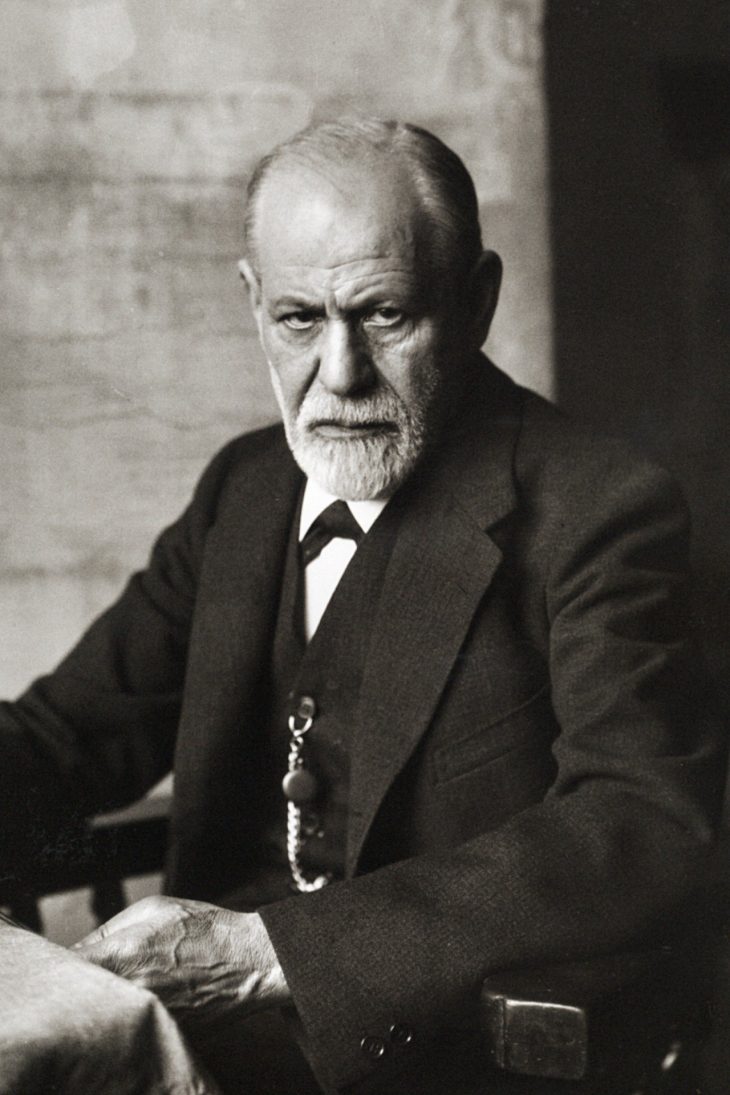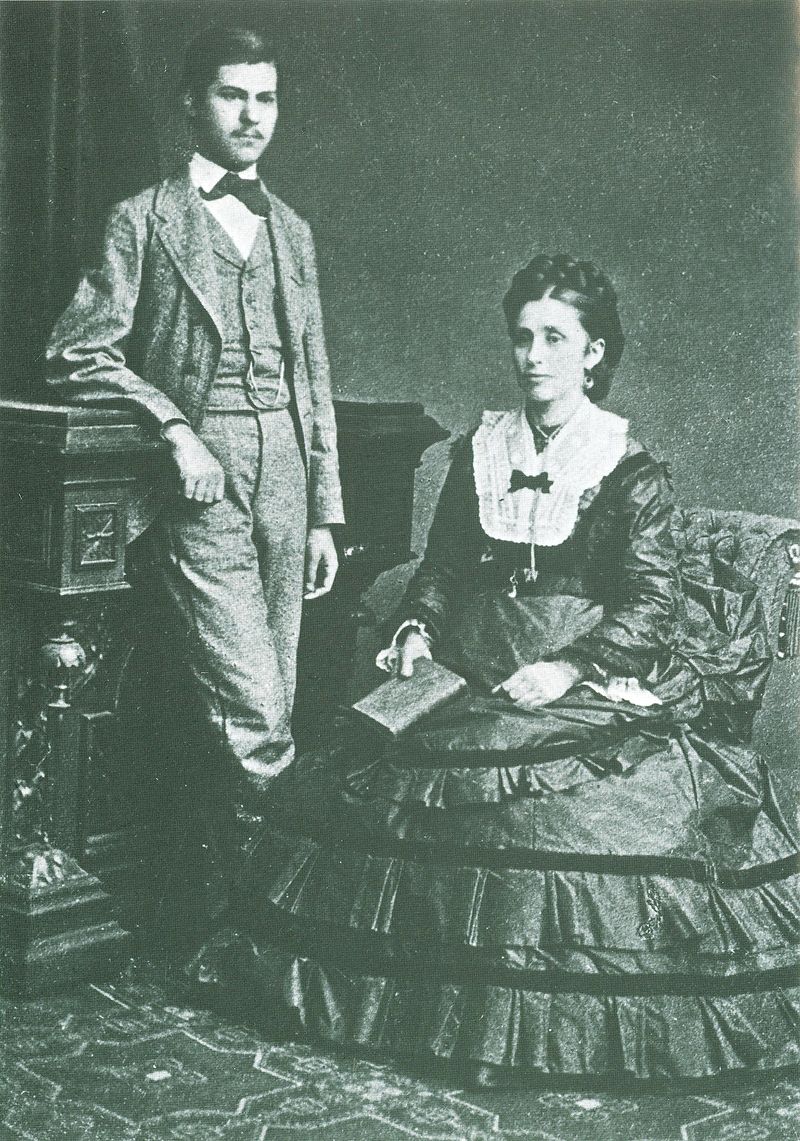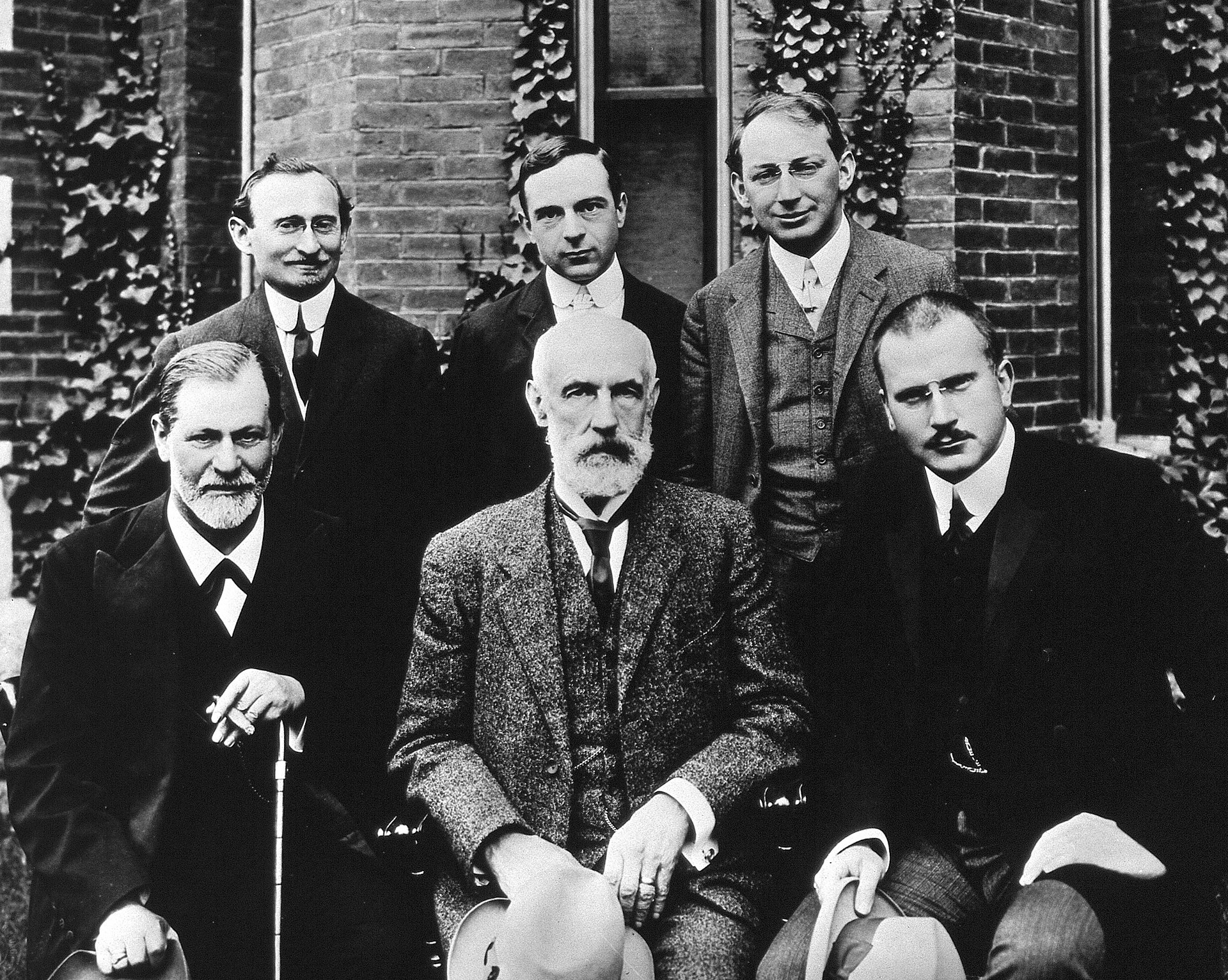
Sigmund Freud is perhaps the most known name in the history of psychology. This Austrian psychoanalyst was influential in discovering different facets of the mind. He originated the concepts of the id, the ego, and the superego. They are three separate, interacting parts of the human personality. The id, ego, and superego work together to contribute to an individual’s behavior.
Sigmund is known all over the world for being the Father Of Psychoanalysis. Psychoanalysis is a set of theories and therapeutic techniques used to study the unconscious mind. Put together, they form a method of treatment for mental disorders.
A renowned physiologist, psychologist, and one of the great thinkers of the early 20th century, Freud studied the structure of the mind, and developed a therapeutic framework for understanding and treating psychological problems. Many of the modern world’s understanding of psychoanalysis is based on Sigmund’s numerous theories. On the other end of the spectrum, his theories have often become the subject of controversy among scientists and scholars.
Sigmund Freud’s Theories
One of his theories was regarding hypnotism. Sigmund believed hypnotism could help the mentally ill. As the years went by, Sigmund let go of that theory. Instead, he focused more on free association and dream analysis. Eventually, these concepts became the groundwork for his famous “talking cure.
The “talking cure” is a psychoanalytic treatment. The treatment involves encouraging patients to say whatever is in their heads. The therapist analyzes what the patient is saying to figure out what past traumas were likely causing the patient’s current distress. Nearly all of today’s therapists use this treatment.
Find out more about the life and works of the Father Of Psychoanalysis in our collection of intriguing Sigmund Freud facts below.
- Sigmund Freud was born on May 6, 1856, in Freiberg, Moravia, Austrian Empire. The town is now known as Příbor, Czech Republic.
- He was the eldest of eight children, one of which died as an infant.
- He coined the term “psychoanalysis” in 1896.
- Freud started his clinical practice in Vienna in 1886.
- Sigmund Freud married Martha Bernays on September 14, 1886, in Hamburg, Germany.
- Sigmund Freud’s full name is Sigismund Schlomo Freud.
- Freud founded the field of psychoanalysis, a form of psychotherapy.
- He explored the mechanisms of the human psyche, mental illness, and abnormal thoughts and behaviors.
- Freud was born to Jewish Galician parents. His father was Jacob Koloman Freud, and his mother was Amalia Malka Nathansohn Freud.
- Freud was a foreign member of the Royal Society of London.
- His closest personal friend was Wilhelm Fliess, a German ear, nose, and throat specialist. Fliess had several theoretical collaborations with Freud.
- As a neurologist, he studied the tissues of the nervous system. His research played an important role in the eventual discovery of the neuron or nerve cell in the 1890s.
- According to Freud, the two main drives of the human psyche are the life drive (or libido) and the death drive.
- In 1881, Freud graduated as a doctor of medicine at the University of Vienna.
- His theory was highly deterministic and places a huge emphasis on the person’s early life.
- Freud was born with a caul or a thin amniotic membrane that covered his head. This is a rare occurrence, and his mother believed that it was an omen that he was meant to be great.
- A parapraxis or “Freudian Slip” is an error that supposedly reveals part of your unconscious mind. Examples of Freudian slips are slips of the tongue, mistyping, misreading, or temporary forgetting.
- Freud’s early research included the field of cerebral palsy or “cerebral paralysis” during his time.
- There is a Sigmund Freud Museum in Vienna, Austria, as well as a Freud Museum in London, United Kingdom.
- During Sigmund Freud’s four-year engagement to Martha Bernays, he wrote around 900 lengthy letters to her.
His birthplace was a rented room in the house of a locksmith.
Sigmund Freud’s family wasn’t particularly well-off. His father, Jacob Freud, was a twice-divorced wool merchant who married Amalia Nathansohn, who was 20 years younger than him. Jacob also lived with two sons from his first marriage, both of which were only a few years younger than Amalia.
Freud’s family struggled financially. They lived in a rented room in the house of a locksmith in what is now the Czech Republic. That room served as Sigmund Freud’s birthplace in 1856, as well as his early childhood home. His family moved to Leipzig, Germany in 1859, then to Vienna, Austria in 1860.
He was proficient in eight languages.
Sigmund Freud has been an excellent student since he was young. He was a prolific writer and reader, and he was certainly a lover of the languages. Freud reportedly was fluent in eight languages: English, French, German, Greek, Hebrew, Italian, Latin, and Spanish. Certainly one of the most impressive Sigmund Freud facts!
Freud had a doting mother.

Amalia Freud was particularly fond of her firstborn son, Sigmund, and some would even say she idolized him. Freud described himself as his mother’s “uncontested favorite”, and Amalia would affectionately call Sigmund “mein goldener Sigi” or “my golden Sigi”. His relationship with his mother would later prove to be influential in his work as a psychoanalyst. In his works, Freud described the relationship between a mother and son as “the most perfect, the most free from ambivalence of all human relationships.”
His relationship with his father wasn’t the best.
Freud had a rather ambivalent view of his father, Jacob. On one hand, he viewed Jacob as a wise, lighthearted man of great optimism. On the other, however, Freud wrote about how his father was meek when one person threw anti-Semitic insults at him on the street.
Jacob’s passivity disturbed Sigmund, and his conflicted views about his father eventually led him to seek more powerful father figures later in his life. These father figures include physicians Ernst Wilhelm von Brücke and Josef Breuer, whom Freud worked with.
Sigmund Freud tried to study the reproductive system of eels.
At the age of 17, Freud entered the University of Vienna, and part of his studies there was zoology. Under the supervision of his professor Carl Claus, he spent four weeks at Claus’ research facility to study the reproductive system of eels.
He dissected hundreds of eels trying to find the male gonads, but the research proved to be inconclusive — and eel reproduction remains a poorly-understood topic to this day. Freud later spent six years comparing the brain anatomy of humans and various other animals.
Freud held cocaine in high regard.
One famous yet controversial fact about Sigmund Freud is that he was a huge fan of cocaine. Freud was a medical researcher who regarded the drug as a cure for a number of physical and mental ailments.
In multiple papers, Freud described many of its positive effects, such as its uses as an analgesic, stimulant, and antidepressant. After conducting numerous experiments on himself, he became a habitual user of the drug. Of course, it’s important to remember that it was legal during his time.
One of Freud’s friends, Ernst von Fleischl-Marxow, had been addicted to morphine at the time Freud was studying the effects of cocaine. Freud then recommended cocaine as a treatment for his morphine addiction, but Marxow ended up addicted to cocaine. Marxow later relapsed back to using morphine and died at the age of 45. Cocaine also tarnished Sigmund Freud’s medical career for a time.
He asserted that homosexuality was nothing to be ashamed of.
Although Freud was ambivalent on whether or not homosexuality was pathological, he stated that homosexuality cannot be changed or eliminated. One famous instance of his progressive views on homosexuality was in a 1935 letter to a mother who asked him to treat her son’s homosexuality.
In the letter, he asserted that homosexuality was not something to be ashamed of and that it was merely a variation of sexual function. Freud also cited many great historical figures who were homosexuals, such as Michelangelo and Plato. Furthermore, he stated that persecuting homosexuality was a great crime and cruelty.
One of his most important books, The Interpretation of Dreams, did not reach commercial success at first.
Sigmund Freud wrote many influential books and papers such as The Interpretation of Dreams, The Psychopathology of Everyday Life, Totem and Taboo, and Civilization and Its Discontents. Many regard The Interpretation of Dreams as Freud’s most significant work due to its exploration of the unconscious mind with respect to dream interpretation.
However, the book did not sell too well when Freud first published it in 1899. He published 600 copies, and the copies did not sell out until eight years later. Fortunately, the book later gained significant popularity and had seven more editions in Freud’s lifetime.
The unconscious mind was central to his theories.
In his topographical perspective of the human mind, Freud identified three levels of consciousness: the conscious, preconscious, and unconscious levels. The conscious level contains present thoughts and feelings — experiences we are aware of. On the other hand, the preconscious level holds memories that you can bring to consciousness. Finally, the unconscious level contains thoughts, behaviors, memories, and desires that we’re unaware of.
Freud maintains that the unconscious comprises the bulk of the human mind. He stated that most of the unconscious mind contains memories and impulses we’ve repressed because they cause too much anxiety.
Freud believed that despite being hidden, the unconscious plays a huge role in people’s thoughts and behaviors. He sought to bring out some contents of the unconscious through dream interpretation and free association.
Sigmund Freud developed the concepts of the id, ego, and superego.
Some of Freud’s most famous concepts are the three provinces of the mind: the id, ego, and superego. The id seeks pleasure and is the instinctual component of the personality. Its polar opposite is the superego, which seeks perfection, morality, and idealism. The ego acts as the rational mediator between the id’s impulses and the superego’s inhibitions. Freud believed that anxiety and phobias arise due to unresolved conflicts between the id and the superego.
Freud used hypnosis in his therapy, but he later abandoned the practice.

Upon starting his clinical practice in Vienna, Sigmund Freud incorporated hypnosis into his psychotherapy. He took inspiration from his collaborator and fellow physician, Josef Breuer. Freud found it much easier to conduct hypnosis if the clients were lying down, and that’s where we get the popular notion of a psychotherapy client lying down on a couch while talking about their past. However, he later abandoned the practice of hypnosis upon learning that allowing his clients to just talk freely was more effective in relieving symptoms of distress. He called this process “free association”.
He used his dog to help him with his psychotherapy sessions.
Freud didn’t have pets growing up, but he grew to develop a love for dogs later in his life. He especially loved Chow Chow dogs. His favorite Chow Chow, Jofi, often assisted Freud in his psychotherapy sessions. Freud remarked that dogs had a calming effect on his clients, and they were likely to talk more freely and openly with Jofi around. Jofi would even let calm clients pet her. If the clients were anxious about her presence, however, then she would move far across the room from them. How cute!
He developed the concept of the Oedipus complex.
One of Sigmund Freud’s most controversial ideas is his concept of the Oedipus complex. The concept refers to a child’s unconscious sexual desire for their parent of the opposite sex and hatred for the parent of the same sex. It traces its origin to the Greek mythological character Oedipus, who killed his father and married his mother.
Freud posited that the Oedipus complex would either result in sexual maturity in its positive outcome or neurosis and sexual deviancy in its negative outcome.
Freud hid his clients’ names under pseudonyms.
Sigmund Freud held confidentiality in high regard, and he often hid the names of his clients by making up pseudonyms for them. He did this in his correspondence with other psychotherapists, his case studies, as well as in his personal notes. Some pseudonyms he used were “Cäcilie M., Little Hans”, “Rat Man”, and “Wolf Man”.
Protecting his clients’ identities was of great importance to him, especially because he had famous clients such as Prince Pedro Augusto of Brazil, Hilda Doolittle, Gustav Mahler, and even Princess Marie Bonaparte, the great-grandniece of Napoleon Bonaparte.
His seduction theory was quite controversial.
Freud developed his controversial seduction theory in the mid-1890s. The Freudian seduction theory posited that hysteria and obsessional symptoms are the results of repressed trauma of childhood sexual abuse. Freud later stated that the repressed memories were more likely fantasies than actual events that occurred in their lives. This garnered a huge amount of controversy, with some researchers postulating that Freud deliberately ignored the clients’ reports of sexual abuse to better fit his theories.
He turned down a huge Hollywood offer.
Sigmund Freud grew to become quite a renowned personality during his time. Samuel Goldwyn, head of Metro-Goldwyn-Mayer Studios (MGM), stated that Freud was the “greatest love specialist in the world”.
In 1925, Goldwyn offered Freud a whopping $100,000 to write or consult on scripts about prominent love stories in history, including that of Antony and Cleopatra. Freud turned down the offer, however, because he had no interest in the film.
Freud wasn’t a big fan of the United States.
Sigmund Freud only visited the United States once, and he wasn’t the biggest fan of the Land Of The Free. In his only visit to America in 1909, he experienced a wide variety of problems such as digestive problems, the lack of public bathrooms, and his recurring dreams about prostitutes.
He also detested the American culture for being too informal. Although Freud reached great fame in the US especially in the roaring ’20s, he never went back to visit the country again.
Supporters of the Nazi party burned his books.
Sigmund Freud himself was an atheist who believed that God was a fantasy derived from an infantile need for a powerful father figure.
However, because of his Jewish ancestry, the Nazis still targeted him and his works. His books were among those that Nazi supporters burned in the book burnings of the 1930s. In response to this, Freud told psychoanalyst Ernest Jones a rather snide and humorous remark, “In the Middle Ages they would have burned me. Now, they are content with burning my books.”
Some of his siblings died in Nazi concentration camps.
When Nazi Germany continued with their persecution of Jewish people and eventually conducted the gruesome Holocaust, Freud’s family suffered immensely. While Freud and some of his siblings managed to escape the grasp of the Nazis, four of his five sisters died in Nazi concentration camps.
Freud once lived within two miles of Hitler, Stalin, Tito, and Trotsky.
One of the most interesting facts about Sigmund Freud is that in 1913, he lived just within two miles of Adolf Hitler, Joseph Stalin, Joseph Tito, and Leon Trotsky. They all lived in Vienna at that time, and some of them were even regular patrons of the same coffee shop.
Freud had a strained relationship with Carl Jung.

The psychiatrist Carl Jung regularly corresponded with Freud starting in 1906. They met in person the following year and quickly became friends. Upon their first meeting alone, the two conversed for more than 12 hours. Freud mentored Jung and even once referred to him as his “eldest son” because he deemed Jung to be his intellectual successor in the field of psychoanalysis.
However, the two brilliant minds famously diverged as Jung rejected many of Freud’s core ideas and vice versa. Jung publicly criticized Freud’s ideas, and it eventually led to a bitter rivalry between two of the most famous psychoanalysts.
He did not understand women very well.
With his patriarchal views and male-centered ideas, it’s needless to say that understanding women wasn’t exactly Freud’s strongest suit. He was a product of his time and viewed women as inferior to men.
Freud also held that women had a completely different psychological structure than men — one that he admittedly did not understand very well.
He reportedly had an affair with his wife’s sister.
Martha Freud’s sister, Minna, moved in with the Freud family in 1896 after the death of her fiancé. Minna formed a close relationship with Freud, which eventually led to rumors of an extramarital affair.
One famous alleged evidence of the affair was a Swiss hotel guest book that Freud had signed in the summer of 1898. Some historians doubt this claim, however, because Carl Jung reportedly started the rumor. Carl and Sigmund were in an intense relationship.
His daughter, Anna Freud, also became an influential psychoanalyst.
Sigmund Freud had six children with his wife, Martha. Several of his descendants became well-known in separate fields, and one of which is Anna Freud. Sigmund often acted as Anna’s psychotherapist, which eventually led Anna to follow her father’s footsteps. Anna Freud made significant contributions to the field of psychoanalysis and child psychology.
He received 13 Nobel Prize nominations.
Sigmund Freud’s works proved to be quite influential, and his ideas earned him 13 Nobel Prize nominations. His first nomination occurred in 1915, and his last was in 1938 — a year before his death. Among these, 12 were for a Medicine Prize and one was for a Literature Prize. Unfortunately, he did not win any of them.
Freud smoked 20 cigars a day.
Most people picture Freud as a serious-looking man sporting a beard and his iconic cigar. He first started smoking cigarettes at the age of 24 and eventually switched to smoking cigars.
Freud reportedly smoked around 20 cigars per day. He viewed his cigar addiction as a preferable alternative to masturbation, which he called “the one great habit”.
He developed cancer because of his smoking habits.
Freud’s 20-cigar-per-day lifestyle ended up taking a toll on his physical health. He developed oral cancer in 1923 due to this lethal habit. During the course of this disease, he visited numerous physicians and had to undergo 34 surgeries to treat his cancer.
Sigmund Freud died by assisted suicide.
Freud’s cancer worsened over the course of 16 years and became inoperable. The famous psychologist suffered immense pain due to the illness. Freud turned to his friend, physician Max Schur, and asked for help to end his suffering.
In this assisted suicide, Schur administered large doses of morphine to Freud, causing an overdose and his eventual death around 3 a.m. on September 23, 1939.
Thieves tried to steal Sigmund Freud’s ashes.
The ashes of Freud and many members of the Freud family reside in the Freud Corner within Golders Green Crematorium in Northern London. Freud’s ashes, along with Martha’s, reside within a 2,300-year-old Greek urn that Princess Marie Bonaparte gifted to him.
In 2014, a group of thieves attempted to snatch the urn, and it sustained some damages. The crematorium then removed the urn from public display, and it now sits in a more secure location.
Some of his theories are still in practice today.
Although some of Sigmund Freud’s ideas can certainly raise eyebrows and garner criticism, his theories certainly left a significant impact on modern psychology.
His talk therapy became a staple of psychotherapy, and his emphasis on early childhood experiences paved the way for better methods of understanding human personality. Furthermore, many of the theories that disagreed with Freud’s theories have now become important foundations of psychology themselves!
Was this page helpful?
Our commitment to delivering trustworthy and engaging content is at the heart of what we do. Each fact on our site is contributed by real users like you, bringing a wealth of diverse insights and information. To ensure the highest standards of accuracy and reliability, our dedicated editors meticulously review each submission. This process guarantees that the facts we share are not only fascinating but also credible. Trust in our commitment to quality and authenticity as you explore and learn with us.


